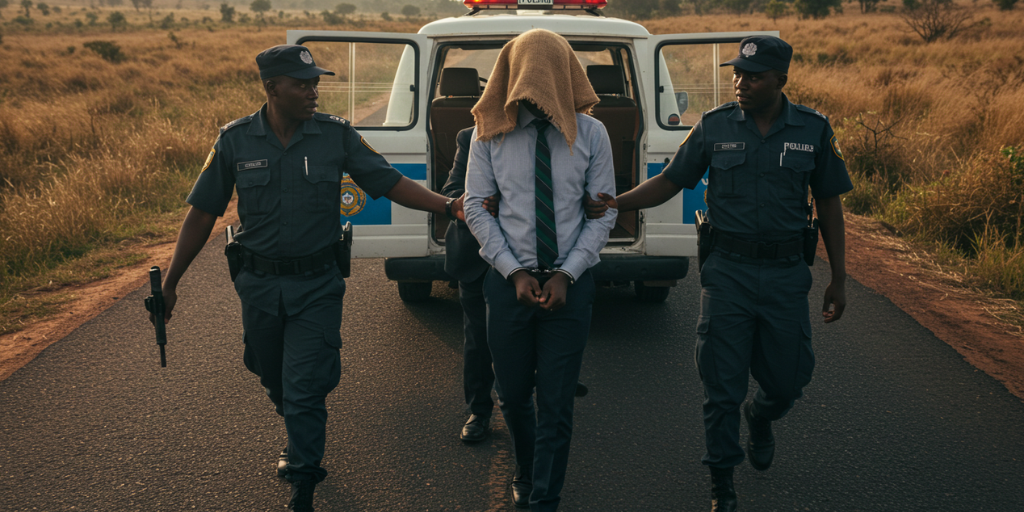Aminu*, 27, had spent two years building his tech startup when his journey suddenly took a harrowing turn. While en route to a project site in an East-African country*, he was abruptly kidnapped — a brutal disruption that threatened both his life and his tech dreams. With his visa suddenly revoked and his future uncertain, Aminu had to navigate a dangerous and complex maze of threats, betrayals, and bureaucracy.
How did he survive this nightmare? And how did he hustle his way from captivity to a fresh start as a fully-funded graduate student in the United States? In this story, Aminu reveals the true cost of chasing a dream across continents.
Disclaimer: *The country’s specific name and other identifying details have been withheld at the subject’s request to protect their privacy and avoid compromising potential or ongoing legal action related to the events described.
As told to Aisha Bello
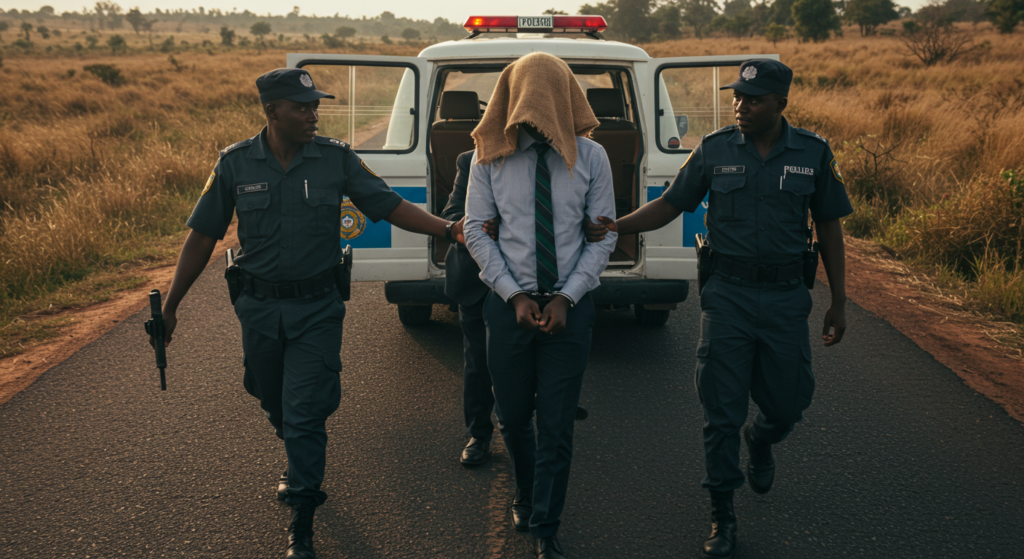
I thought leaving Nigeria would save me from its problems, but I found bigger ones waiting. It didn’t take me long to learn that corruption, bad governance and insecurity all have passports — and they travel, too.
I’d been living in an East-African country for nearly two years without a single bad encounter. Even at 3 a.m., I could walk the streets in the cool night air, unbothered, unhurried and unafraid. So when the minister of technology and innovation invited me to consult on a new data centre project, I didn’t think twice.
A few days earlier, she’d called after finding my work on LinkedIn. My software engineering projects caught her eye, and she wanted my input to ensure the data centre was being built right. From my perspective, this could be the recognition I’d been working toward ever since I moved to the country in January 2023 to build my tech startup.
I met the minister at one of those huge government buildings in the state capital, where all the ministries are housed under one roof. We had a good conversation, and then she suggested we drive down to see the site together.
So there I was, in the backseat of her Hyundai, the driver flying down the road. We were chatting about the project when a black police van swerved before us.
At first, I thought it was just a routine check, except I’d never seen one in the country. Three of the “policemen” stepped out, a rifle hanging casually at their side. The sight made my stomach knot. They waved us out of the car.
The air shifted the moment I stepped onto the highway. Rough hands spun me around, slamming me against the boot. I felt cold metal tighten around my wrists, cuffs, before a sack dropped over my head, and my world went black. In seconds, I was shoved into their van. My heartbeat thundered in my ears as the engine roared, and the vehicle jerked into motion.
At first, I thought they were after the minister. But it became clear, in the way no one else was touched, that I was the target. It felt like a scene ripped straight out of a James Bond movie.
But I was no James Bond.
After what felt like hours, we stopped. Still shrouded in darkness beneath the sack, I was marched into a small room, uncuffed, and instructed not to move.
I heard footsteps. Voices in a language I didn’t understand. Then silence, followed by the sharp click of the door locking and the distant sound of the van driving away.
When I finally dared to remove the sack from my head and take in my surroundings, I found myself enclosed by smooth white walls, and nothing else in sight.
The room had only one window, small and wedged so high on the wall it was almost out of reach. I rose onto my toes and craned my neck, but all I managed to see were the tops of shrubs and wild grass brushing against each other in the wind.
That was enough to tell me I was miles from the main road, somewhere deep in the bush. If I screamed from now till the end of time, no one would hear me. The thought made my chest tighten and the room tilt.
A wave of nausea punched through me, and I crumpled to the floor, my head in my hands, heavy with defeat. My phone and gadgets were gone. All I had was the clothes on my back and a thin blanket on the cold floor.
The first day ended with the hollow thump of a door opening. Someone placed a plate of food inside. I didn’t eat; it could be poisoned. By the second day, hunger had replaced fear. I ate.
“If na so I go die, sorry to mama,” I told myself.
The days blurred. After a week, I stopped counting. The only times I heard human voices were when they brought food. The rest was silence, broken only by the soft hiss of wind through the grass outside.
Then, one day, the silence broke differently. The door opened, and two familiar faces stepped in, leaning against the wall like they owned the place. The “policemen” I’d seen earlier stood behind them in plain clothes.
And just like that, the real reason I was here hit me.
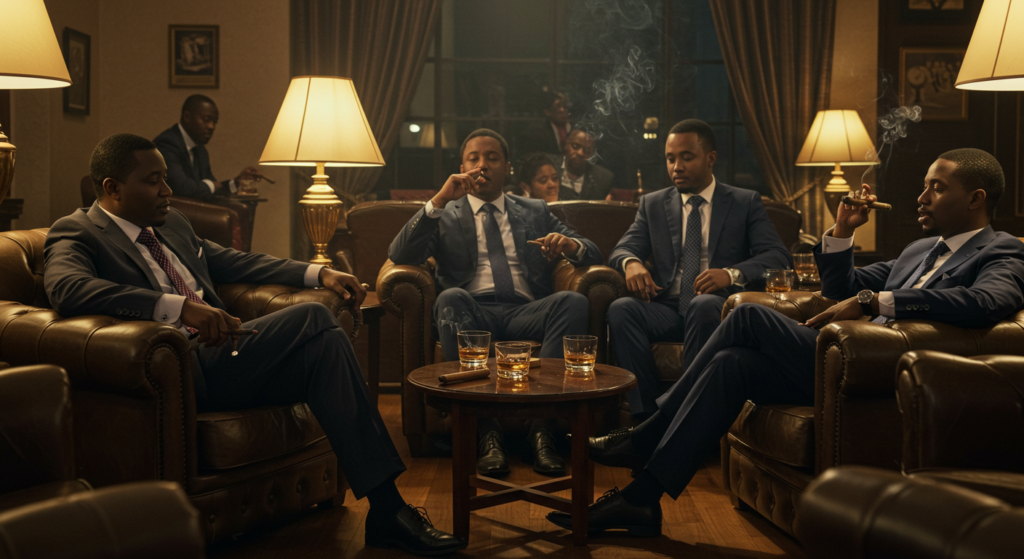
A few weeks before I was taken, I heard about a cigar lounge in town, the kind of place where the capital city’s power players went to relax, trade ideas, and quietly negotiate the country’s future.
By then, my team and I were on the brink of launching our product in this East African country. We’d spent close to two years building, testing, and refining. We’d run social experiments, plastered ads everywhere, and teased the launch on LinkedIn. The buzz was growing.
The idea seemed simple but disruptive. It was a tourist-centred African food delivery service, like Uber Eats or DoorDash, but tailored to the country’s unique market. Only one other player was in the space, and we were already making noise. Our beta web version had been running smoothly, and the mobile app was almost ready. Top restaurants were on board. Their windows carried “Coming Soon” flyers in bold print, and our vendors were primed for launch.
The cigar lounge felt like the right place to be that night. If I could pitch the idea to the right people, the rollout could explode.
What I didn’t expect was to come face-to-face with the founders of my only competitor. I caught their attention after pitching my product to several top players at the lounge. They were a father and son team, and they didn’t waste time before approaching me with an offer.
They offered $15,000 (about 25 million in the local currency) to buy my company out — a shockingly low bid from influential players. I politely declined. The father’s smile didn’t reach his eyes, and the son just stared at me for a long moment before they walked away without another word. Something about their quiet composure carried a deadly weight, but I tried to shake it off.
Then I called my co-founder. If these powerful people were already trying to buy us out so cheaply, it was a clear warning sign. I sensed danger.
My co-founder and I began discussing strategies to protect our business and pursue growth beyond East Africa.
Out of the blue, I got a call from the minister of technology.
Weeks had passed. I pushed the cigar lounge encounter to the back of my mind, focusing on the exciting opportunity ahead. I should have known better.
Before I could fully grasp what was happening, the same father and son duo from the cigar lounge were staring at me in my makeshift prison, deep in the bush, in the middle of nowhere.
“You can’t launch that product in this country, my friend,” he lamented with a wicked smirk.
For them, this wasn’t about healthy competition or market dynamics. In a country where one major player can dominate an entire sector, our app represented a potential 50% cut to their customer base within months. They weren’t just protecting market share — they were protecting a monopoly.
They laid out two options, both of which meant the same thing: my app would never see the light of day there.
Option one: $15,000 in exchange for the app. I take the cash and leave.
Option two: Stay in the country, but never launch the app as long as I live there.
Months of sleepless nights, testing, vendor onboarding, and marketing, all gone. I was set to chip away at their market share, and they weren’t willing to let that happen.
I thought fast. Protecting my life was as urgent as protecting my work. I refused the money and reluctantly signed papers, agreeing not to launch the app while I lived in the heart of East Africa.
My entrepreneurship visa still had about a year left. I wasn’t ready to return to Nigeria, and while I had a direction in mind, nothing was guaranteed yet.
Here’s the thing about this East-African country: it’s a small, beautiful country, but in certain waters, the fish have teeth. It didn’t hit me that I’d wandered onto someone’s turf. And in a place where monopolies are the quiet rulers, that kind of overlap doesn’t just make you competition. It makes you a problem.
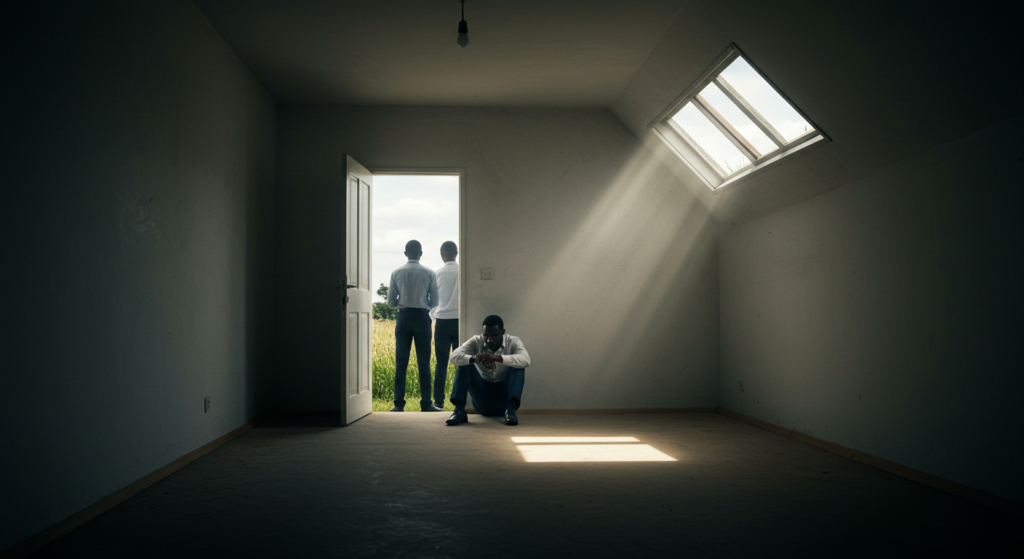
Running Out of Time
After I signed the papers, they escorted me into a car and dropped me off in the middle of a quiet street in the capital city. My devices and wallet were handed back like nothing had happened. I hailed a cab with shaky hands and made my way home, the city feeling both familiar and strange.
The moment I stepped into my apartment and powered on my phone, the first message I saw was from immigration. My visa had expired.
How?
The text said I had just one month left to leave the country.
I had relocated to the country in January 2023. As a Nigerian, I didn’t need to apply for a visa beforehand.
I automatically received a free 30-day tourist visa upon arrival. To secure a longer stay, I eventually switched to a three-year entrepreneurship work visa. This process involved two extensions: first, upgrading from the initial tourist visa to a three-month business survey visa to test the market, followed by a renewal before finally locking in the three-year permit.
Technically, I still had about a year and a few months left. Omo. I wasn’t ready for this fight.
I scrolled through the news, desperate for answers. There were no reports of a kidnapped minister or a missing driver. It was only me, and I was held captive for two agonising weeks.
When I called the minister after the incident, she never picked up.
I searched the internet for the data centre we were going to visit. Nothing came up. There were no projects, no construction, and no announcements.
How was I that blind?
It felt like the whole system was rigged against me. After that, the real battle began. I had been asked to leave, but I had to start fighting for my right to stay.

A Ticket Out
Before I got abducted, my co-founder and I were already thinking beyond the East African country. The product gained promising interest in the capital city, serving as a social experiment and beta test to see how people would respond. But this wasn’t the final destination. We knew African food was in demand worldwide, especially among the massive African diaspora hungry for a taste of home.
Las Vegas, one of the US’s fastest-growing and most robust markets, was our next big target. My co-founder, based in Los Angeles, planned to relocate there to support the launch while I focused on finding my way into the country.
We began remodelling the app, readying it for a bigger launch, but scaling globally came with complex challenges. Entering the US market through the company wasn’t straightforward — we needed to have paid taxes in the East African country for three years, complete piles of paperwork, and meet strict requirements to employ foreigners. We hadn’t met those conditions yet.
So I started thinking differently: maybe school was my best path into the US, a way to secure my footing before finalising the app’s launch once I was settled.
I’d already considered a master’s degree. With a first-class degree in computer science from Nigeria, I recalled a professor at a US university whose research paper had inspired my undergraduate thesis. I’d taken his foundational work and developed it further. When I contacted him to share how I’d advanced his concepts and my interest in studying under him, he was intrigued.
Before I got kidnapped, we had a meeting, and after about a week, he offered me a PhD position with full tuition support. But knowing I’d be busy running my business, I told him I’d prefer a master’s degree instead, even though that meant paying $28,000 per year in tuition.
That was a lot of money I didn’t have.
So, I applied for a graduate assistantship with the university’s Office of Information Technology. They interviewed me, but I was still waiting to hear back from them when I got kidnapped.
The week after I was released, I was still scrambling, running around, trying to fix the visa mess that had been forced on me. My mind raced, caught between fear and the unknown.
Then, suddenly, an email came through. I got the assistantship job, which covered my tuition and provided an employment letter to prove my financial support for the visa.
It felt like the universe was smiling at me.
That job offer gave me the green light — the “ginger” I needed to apply for the US visa. The very day I got that email, I stopped chasing anything in East Africa.
With only a month left before my visa expired, all I had to do was book my US visa interview. By some miracle, I got a date within the time frame.
After securing the graduate assistantship, my total expenses for visa fees, the interview, and the flight came down to about $2,500, a decent price for a fresh start. I landed in the US in September 2024 for the fall semester.
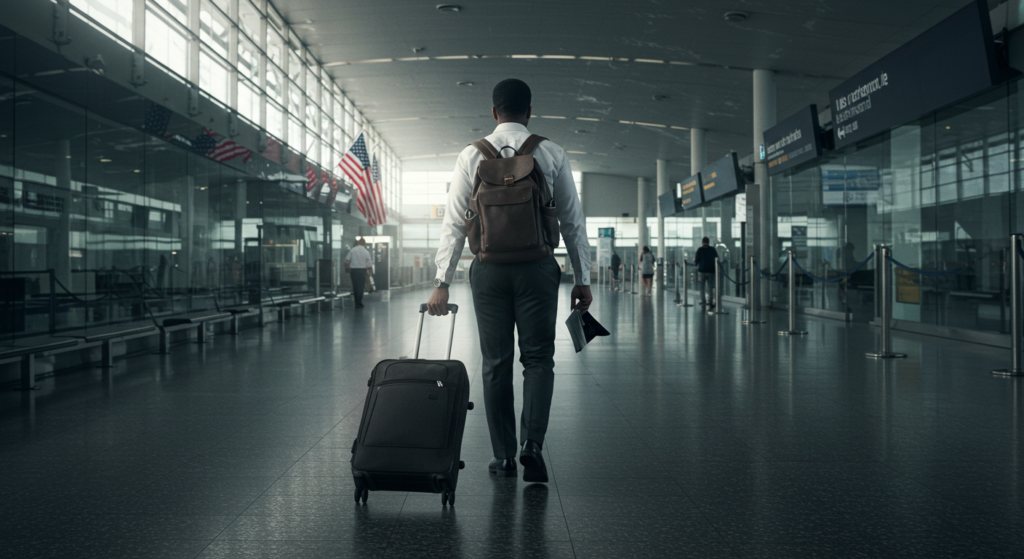
New Roots, New Dreams
It’s August 2025, and I’m pursuing a two-year master’s in computer science. I expect to finish by March 2026.
Since arriving in the US, I’ve been juggling school, a graduate assistantship that pays $1,500 a month, and running a tech agency that keeps ticking over with client commissions: websites, coded apps, and anything that requires software engineering muscle. This brings in about $2,000 per month.
I’m pretty handy. I also take on side gigs like photography, cinematography, music production, CCTV installation, and upholstery making — skills I picked up over the years. These income streams add up to roughly $7,000 in a good month.
Balancing school and work isn’t easy. I have to scale back on side projects when classes are in session, focusing mainly on the assistantship and essential gigs to keep things moving.
We’re focusing on the agency side of things, keeping it steady while I find the right balance settling into life here. We plan to roll out the app in the US once I’m fully settled and can give it the attention it deserves. I suspect this will happen after I complete my studies.
And in between all that, I’ve had a lot of time to think. You leave home thinking you’re running away from your problems. But the reality hits you: those problems travel with you. The faces and places change, but the struggles often remain the same. We talk a lot about corruption in Nigeria, but corruption isn’t unique to one country. It’s everywhere. It’s just quieter there, less visible on social media and headlines.
And it’s wild how perspectives shift depending on where you are. People criticising leaders back home might be praising very different figures abroad. Then you step into a new environment and realise the world’s not so black and white. It’s complicated, messy, and often upside down.
Names* marked with an asterisk have been changed to respect the speaker’s privacy.
Next Read: I Was 20 When I Sold My Eggs to Pay Bills. It Altered My Life Forever
